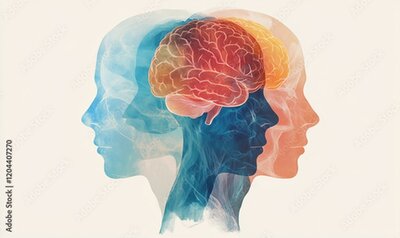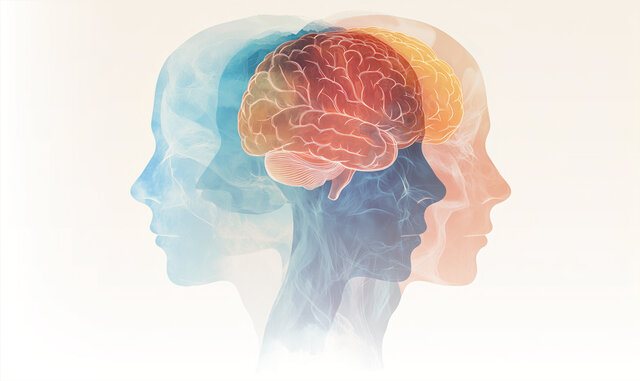
Panel discussion on...
Cognitive health
Welcome in the world of alternative meat: analytical challenges and perspectives

Are there specific cognitive functions, such as memory, focus, or stress management that are driving the majority of consumer interest? Why?
In the dietary supplement industry, several key areas of cognition are actively explored, often through supplements marketed to support brain function, mental performance, and emotional well-being. The market for cognitive-enhancing supplements, or “nootropics,” continues to grow as more consumers seek natural ways to optimize their mental performance and well-being.
There are several key areas including memory and recall, focus and attention, mental clarity and cognitive function, mood and stress management, healthy ageing and sleep and recovery that all contribute to cognitive health. Supplements targeting memory improvement are among the most popular in the cognitive health market, with ingredients such as probiotics, ginkgo biloba, bacopa monnieri, phosphatidylserine and other phospholipids, and panax ginseng are commonly used to support memory function and enhance recall. Many of these supplements have been demonstrated to support neuronal development, maturation and maintenance and claim to improve long-term and short-term memory, helping with tasks that require memory retention, like studying or learning new information.
Focus and attention is another key area of cognitive performance. Supplements with scientific evidence for focus and attention include caffeine and other psychostimulants, L-theanine, rhodiola rosea, and citicoline. These ingredients are believed to enhance concentration, reduce mental fatigue, and support sustained attention, especially in high-pressure or multitasking environments. Other supplements linked with focus and attention but also support mental clarity and cognitive function include omega-3 fatty acids (DHA and EPA), curcumin, B vitamins (e.g., B6, B12, folic acid), and vitamin D that have demonstrated efficacy in improving cognitive performance in preclinical animal models.
Supplements designed to support emotional well-being and stress management are closely linked to cognition because chronic stress can impair cognitive function. The role of the diet, and by proxy, dietary supplements in gut-brain communication (including modulation of the gut microbiota) is an ever-growing area of research. Supplements such as probiotics, prebiotics that support the gut microbiota, ashwagandha, holy basil, and L-theanine are commonly included in mood-enhancing supplements, which claim to reduce anxiety often through neurotransmitter modulation (e.g. serotonin, dopamine, GABA), improve resilience to stress, and promote a calm, focused state of mind.
With the aging population becoming a larger consumer group, there is a growing market for supplements that target cognitive decline and neuroprotection. Probiotics that are immunomodulators are often used to reduce a process in ageing known as inflammaging, an increase in undesirable inflammatory tone in neurons and microglia. The aforementioned ingredients as well as others such as resveratrol and other polyphenols, coenzyme Q10 (CoQ10), curcumin, and N-acetylcysteine (NAC) are often marketed for their potential to protect the brain from age-related decline, reduce oxidative stress, and improve neuroplasticity.
Proper sleep is essential for cognitive health, and supplements that improve sleep quality are commonly used to support cognitive functions. Ingredients that regulate our circadian rhythm including melatonin, serotonin, magnesium, valerian root, and chamomile are ingredients in sleep aids that, while not directly enhancing cognition, are marketed to improve the quality of restorative sleep, which in turn supports mental clarity and cognitive performance during the day.
With increasing digital distractions, how can the supplement industry position itself to address the growing concern of digital fatigue and its cognitive impacts?
With the rise of digital distractions—from constant notifications to multitasking on multiple devices—there is growing concern about digital fatigue and its cognitive impacts. This fatigue can manifest as mental exhaustion, decreased focus, and even memory issues, contributing to a decline in overall cognitive performance. The supplement industry can capitalize on this growing concern by positioning itself as a solution to mitigate the effects of digital fatigue and support cognitive health in a tech-heavy world.
As mentioned above nootropic supplements can help maintain focus, improve attention, and enhance mental clarity. However, while supplements can help in some respects regarding mental acuity, a better approach for ameliorating the long-term effects of digital fatigue would be in educating consumers of the negative effects of digital interfacing and to encourage a better work-life balance. One major benefit of the digital age however is the beneficial uses of wearables, VR and apps (e.g. puzzles, health trackers etc.) for improving many aspects of cognitive health.
Do you see a shift towards multi-benefit supplements that combine cognitive support with other health areas, such as mood, energy, emotional well being or immune function?
There is a growing trend towards multi-benefit supplements that combine cognitive support with other areas of health, such as mood, energy, emotional well-being, and immune function. Oftentimes, companies rely on the structure function claims of one or more ingredients to carry the claim and add in other ingredients that have demonstrated beneficial effects in other health areas. This trend reflects a growing consumer interest in holistic health solutions and a desire for more convenient, all-in-one products that address multiple aspects of well-being simultaneously. From early life our neurons are forming and pruning synaptic connections that get reinforced over time with use. This requires energy and various nutrients from the diet. Multi-benefit strategies supporting neuronal health with other categories like metabolic health, immune health, digestive health and detoxification all improve overall general health, which in turn supports mood and cognitive health.
How do differences in gender and age groups influence dosing strategies and health claims for cognitive health supplements? Are there specific considerations or opportunities for targeting these segments?
Every individual is unique. We have our own unique genome, and our own unique microbiota consortia, and the collective ability of the enzymatic machinery of microbes and host influence our ability to digest food and absorb nutrients that are essential for metabolism and brain health. In essence, we evolve with microbiota over time. Factors such as diet, and age as well as hormonal input (particularly in puberty and menopause, but also throughout the menstrual cycle) can influence how we as a holobiont (combination of host and microbiota) digest and utilise macronutrients, minerals and vitamins. Much research is underway into the biological changes in menopause and approaches to minimising the negative impacts that undergo female physiology throughout this period, that will provide evidence for potential dietary supplements that may prove beneficial. By targeting specific segments with tailored formulations such as focusing on hormonal changes for women, cognitive support for older adults, and energy for younger populations the supplement industry can effectively address the evolving needs of each group. However, many customers (although appearing outwardly healthy) do not meet their recommended daily amounts of several macronutrients, micronutrients, minerals and vitamins.
Awareness of what they may lack (e.g. individuals on vegan, vegetarian diets or diets with little or no nuts, fruits, vegetables or meat) should suggest what type of dietary supplements they should be taking to make up for what nutrients they are lacking from the diet which changes depending on life stage.
Where do you see the cognitive health supplement market in the next 5 to 10 years, and what trends or innovations do you anticipate will define its future?
The cognitive health supplement market is poised for significant growth in the next 5 to 10 years, driven by an increasing awareness of brain health, aging populations, and the growing demand for enhanced mental performance in all age groups. As consumers become more proactive about maintaining cognitive function, the supplement industry will evolve in response to emerging science, consumer preferences, and technological innovations. A fascinating approach is in the area of personalised nutrition and supplementation. Advances in genomics, microbiome analysis, and nutrigenomics (the study of how nutrition affects gene expression) will allow for highly personalized supplement regimens based on an individual’s unique genetic makeup, microbiome, enzyme efficiency, lifestyle, and cognitive health goals to allow for tailored improvements in mental acuity and cognition using probiotics or many of the aforementioned nootropics, as well as considerations for dietary enzyme supplements.
Figure 1. Overlaid Representative Chromatograms for PBM (black) and Organic Beef (pink) (6).
Panelists
References and notes
- Zhang C, Hu Q, Li S, Dai F, Qian W, Hewlings S, Yan T, Wang Y. A Magtein®, Magnesium L-Threonate, -Based Formula Improves Brain Cognitive Functions in Healthy Chinese Adults. Nutrients. 2022 Dec 8;14(24):5235. doi: 10.3390/nu14245235. PMID: 36558392; PMCID: PMC9786204.
- Shoba G, Joy D, Joseph T, Majeed M, Rajendran R, Srinivas PS. Influence of piperine on the pharmacokinetics of curcumin in animals and human volunteers. Planta Med. 1998 May;64(4):353-6. doi: 10.1055/s-2006-957450. PMID: 9619120.
- Łysakowska P, Sobota A, Wirkijowska A. Medicinal Mushrooms: Their Bioactive Components, Nutritional Value and Application in Functional Food Production-A Review. Molecules. 2023 Jul 14;28(14):5393. doi: 10.3390/molecules28145393. PMID: 37513265; PMCID: PMC10384337.
- Kumar M, Saurabh V, Tomar M, Hasan M, Changan S, Sasi M, Maheshwari C, Prajapati U, Singh S, Prajapat RK, Dhumal S, Punia S, Amarowicz R, Mekhemar M. Mango (Mangifera indica L.) Leaves: Nutritional Composition, Phytochemical Profile, and Health-Promoting Bioactivities. Antioxidants (Basel). 2021 Feb 16;10(2):299. doi: 10.3390/antiox10020299. PMID: 33669341; PMCID: PMC7920260.
- T. Reyes-Izquierdo, R. Argumedo, C. Shu, B. Nemzer and Z. Pietrzkowski, "Stimulatory Effect of Whole Coffee Fruit Concentrate Powder on Plasma Levels of Total and Exosomal Brain-Derived Neurotrophic Factor in Healthy Subjects: An Acute Within-Subject Clinical Study," Food and Nutrition Sciences, Vol. 4 No. 9, 2013, pp. 984-990. doi: 10.4236/fns.2013.49127.
- Boris Nemzer, Nebiyu Abshiru, and Fadwa Al-Taher Journal of Agricultural and Food Chemistry 2021 69 (11), 3430-3438 DOI: 10.1021/acs.jafc.0c05937
- Kumar N, Abichandani LG, Thawani V, Gharpure KJ, Naidu MU, Venkat Ramana G. Efficacy of Standardized Extract of Bacopa monnieri (Bacognize®) on Cognitive Functions of Medical Students: A Six-Week, Randomized Placebo-Controlled Trial. Evid Based Complement Alternat Med. 2016;2016:4103423. doi: 10.1155/2016/4103423. Epub 2016 Oct 10. PMID: 27803728; PMCID: PMC5075615.
- Pérez-Piñero, S.; Muñoz-Carrillo, J.C.; Echepare-Taberna, J.; Muñoz-Cámara, M.; Herrera-Fernández, C.; García-Guillén, A.I.; Ávila-Gandía, V.; Navarro, P.; Caturla, N.; Jones, J.; et al. Dietary Supplementation with an Extract of Aloysia citrodora (Lemon verbena) Improves Sleep Quality in Healthy Subjects: A Randomized Double-Blind Controlled Study. Nutrients 2024, 16, 1523. https://doi.org/10.3390/nu16101523
- Sowinski R, Gonzalez D, Xing D, Yoo C, Jenkins V, Nottingham K, Dickerson B, Humphries M, Leonard M, Ko J, Faries M, Kephart W, Rasmussen CJ, Kreider RB. Effects of Inositol-Enhanced Bonded Arginine Silicate Ingestion on Cognitive and Executive Function in
- Zhang Y, Jia X, Chen X, Liu Y, Zhao Z, Hao J, Wu R, Feng H, Ren X. L-theanine and Neumentix mixture improves sleep quality and modulates brain neurotransmitter levels in mice. Ann Palliat Med. 2021 Apr;10(4):4572-4581. doi: 10.21037/apm-21-663. PMID: 33966405. Gamers. Nutrients. 2021 Oct 24;13(11):3758. doi: 10.3390/nu13113758. PMID: 34836014; PMCID: PMC8618773.
- Ko J, Yoo C, Xing D, Gonzalez DE, Jenkins V, Dickerson B, Leonard M, Nottingham K, Kendra J, Sowinski R, Rasmussen CJ, Kreider RB. Pharmacokinetic Analyses of Liposomal and Non-Liposomal Multivitamin/Mineral Formulations. Nutrients. 2023 Jul 7;15(13):3073. doi: 10.3390/nu15133073. PMID: 37447400; PMCID: PMC10347199.
- Shoba G, Joy D, Joseph T, Majeed M, Rajendran R, Srinivas PS. Influence of piperine on the pharmacokinetics of curcumin in animals and human volunteers. Planta Med. 1998 May;64(4):353-6. doi: 10.1055/s-2006-957450. PMID: 9619120.
- Sowinski R, Gonzalez D, Xing D, Yoo C, Jenkins V, Nottingham K, Dickerson B, Humphries M, Leonard M, Ko J, Faries M, Kephart W, Rasmussen CJ, Kreider RB. Effects of Inositol-Enhanced Bonded Arginine Silicate Ingestion on Cognitive and Executive Function in Gamers. Nutrients. 2021 Oct 24;13(11):3758. doi: 10.3390/nu13113758. PMID: 34836014; PMCID: PMC8618773.
- Kim YS, Unno T, Kim BY, Park MS. Sex Differences in Gut Microbiota. World J Mens Health. 2020 Jan;38(1):48-60. doi: 10.5534/wjmh.190009. Epub 2019 Mar 25. PMID: 30929328; PMCID: PMC6920072.
- Peters BA, Santoro N, Kaplan RC, Qi Q. Spotlight on the Gut Microbiome in Menopause: Current Insights. Int J Womens Health. 2022 Aug 10;14:1059-1072. doi: 10.2147/IJWH.S340491. PMID: 35983178; PMCID: PMC9379122.
- Scheiman J, Luber JM, Chavkin TA, MacDonald T, Tung A, Pham LD, Wibowo MC, Wurth RC, Punthambaker S, Tierney BT, Yang Z, Hattab MW, Avila-Pacheco J, Clish CB, Lessard S, Church GM, Kostic AD. Meta-omics analysis of elite athletes identifies a performance-enhancing microbe that functions via lactate metabolism. Nat Med. 2019 Jul;25(7):1104-1109. doi: 10.1038/s41591-019-0485-4. Epub 2019 Jun 24. PMID: 31235964; PMCID: PMC7368972.
- Nakazaki E, Mah E, Sanoshy K, Citrolo D, Watanabe F. Citicoline and Memory Function in Healthy Older Adults: A Randomized, Double-Blind, Placebo-Controlled Clinical Trial. J Nutr. 2021 Aug 7;151(8):2153-2160. doi: 10.1093/jn/nxab119. PMID: 33978188; PMCID: PMC8349115.
- Docherty S, Doughty FL, Smith EF. The Acute and Chronic Effects of Lion's Mane Mushroom Supplementation on Cognitive Function, Stress and Mood in Young Adults: A Double-Blind, Parallel Groups, Pilot Study. Nutrients. 2023 Nov 20;15(22):4842. doi: 10.3390/nu15224842. PMID: 38004235; PMCID: PMC10675414.
- La Monica MB, Raub B, Ziegenfuss EJ, Hartshorn S, Grdic J, Gustat A, Sandrock J, Ziegenfuss TN. Acute Effects of Naturally Occurring Guayusa Tea and Nordic Lion's Mane Extracts on Cognitive Performance. Nutrients. 2023 Dec 6;15(24):5018. doi: 10.3390/nu15245018. PMID: 38140277; PMCID: PMC10745489.
- Rootman JM, Kiraga M, Kryskow P, Harvey K, Stamets P, Santos-Brault E, Kuypers KPC, Walsh Z. Psilocybin microdosers demonstrate greater observed improvements in mood and mental health at one month relative to non-microdosing controls. Sci Rep. 2022 Jun 30;12(1):11091. doi: 10.1038/s41598-022-14512-3. Erratum in: Sci Rep. 2022 Jul 28;12(1):12925. doi: 10.1038/s41598-022-17428-0. PMID: 35773270; PMCID: PMC9246852.
- David A Camfield, Con Stough, Jonathon Farrimond, Andrew B Scholey, Acute effects of tea constituents L-theanine, caffeine, and epigallocatechin gallate on cognitive function and mood: a systematic review and meta-analysis, Nutrition Reviews, Volume 72, Issue 8, 1 August 2014, Pages 507–522, https://doi.org/10.1111/nure.12120
- Kalman D, Harvey PD, Perez Ojalvo S, Komorowski J. Randomized Prospective Double-Blind Studies to Evaluate the Cognitive Effects of Inositol-Stabilized Arginine Silicate in Healthy Physically Active Adults. Nutrients. 2016 Nov 18;8(11):736. doi: 10.3390/nu8110736. PMID: 27869715; PMCID: PMC5133120.
- Lindbergh CA, Renzi-Hammond LM, Hammond BR, Terry DP, Mewborn CM, Puente AN, Miller LS. Lutein and Zeaxanthin Influence Brain Function in Older Adults: A Randomized Controlled Trial. J Int Neuropsychol Soc. 2018 Jan;24(1):77-90. doi: 10.1017/S1355617717000534. Epub 2017 Jul 11. PMID: 28695791.
- Kadam I, Nebie C, Dalloul M, Hittelman J, Fordjour L, Hoepner L, Futterman ID, Minkoff H, Jiang X. Maternal Lutein Intake during Pregnancies with or without Gestational Diabetes Mellitus and Cognitive Development of Children at 2 Years of Age: A Prospective Observational Study. Nutrients. 2024 Jan 22;16(2):328. doi: 10.3390/nu16020328. PMID: 38276566; PMCID: PMC10819807.
- Parekh R, Hammond BR Jr, Chandradhara D. Lutein and Zeaxanthin Supplementation Improves Dynamic Visual and Cognitive Performance in Children: A Randomized, Double-Blind, Parallel, Placebo-Controlled Study. Adv Ther. 2024 Apr;41(4):1496-1511. doi: 10.1007/s12325-024-02785-1. Epub 2024 Feb 16. PMID: 38363462; PMCID: PMC10960892.
- Katagiri M, Satoh A, Tsuji S, Shirasawa T. Effects of astaxanthin-rich Haematococcus pluvialis extract on cognitive function: a randomised, double-blind, placebo-controlled study. J Clin Biochem Nutr. 2012 Sep;51(2):102-7. doi: 10.3164/jcbn.D-11-00017. Epub 2012 Mar 30. PMID: 22962526; PMCID: PMC3432818.
































